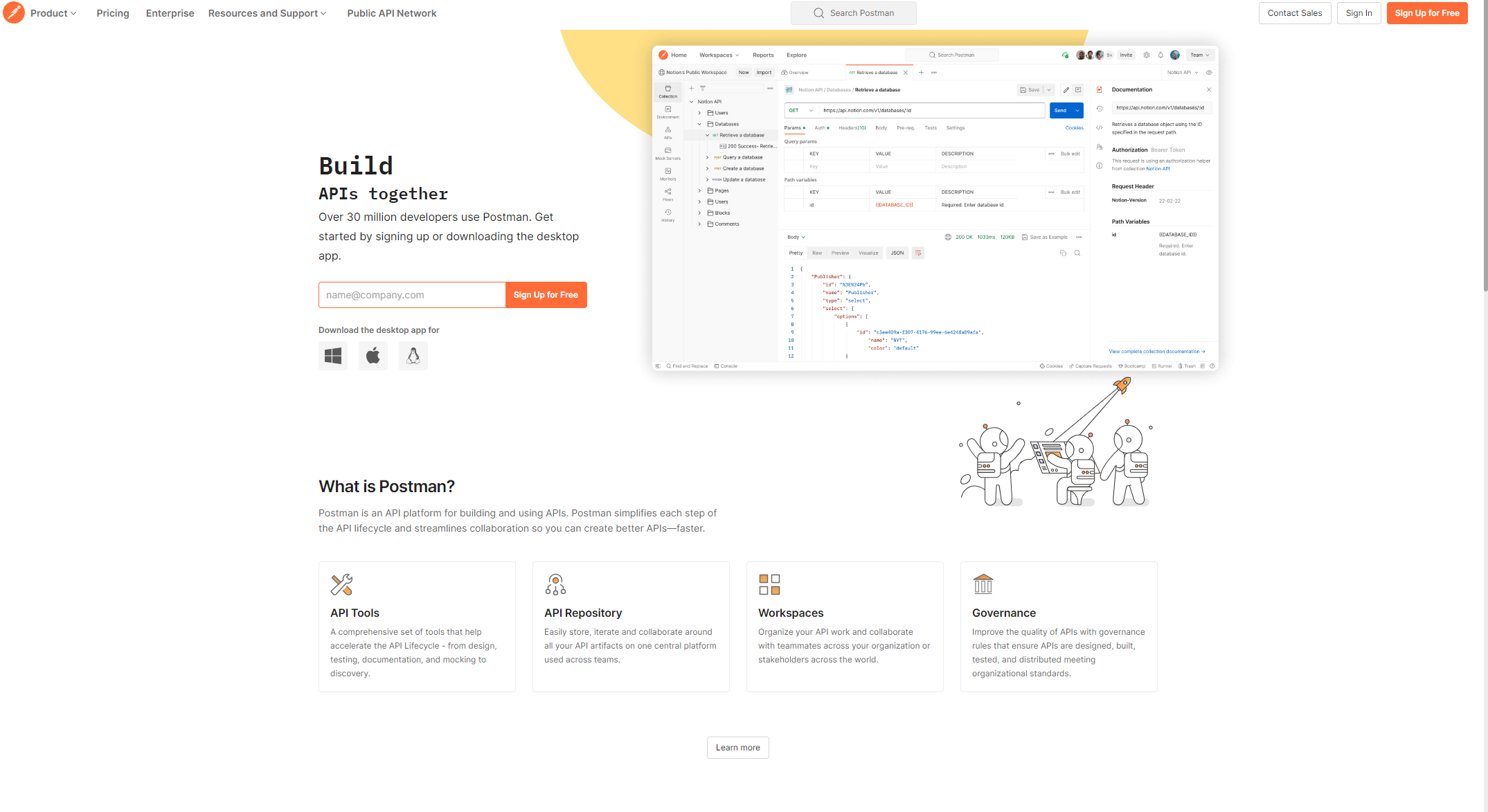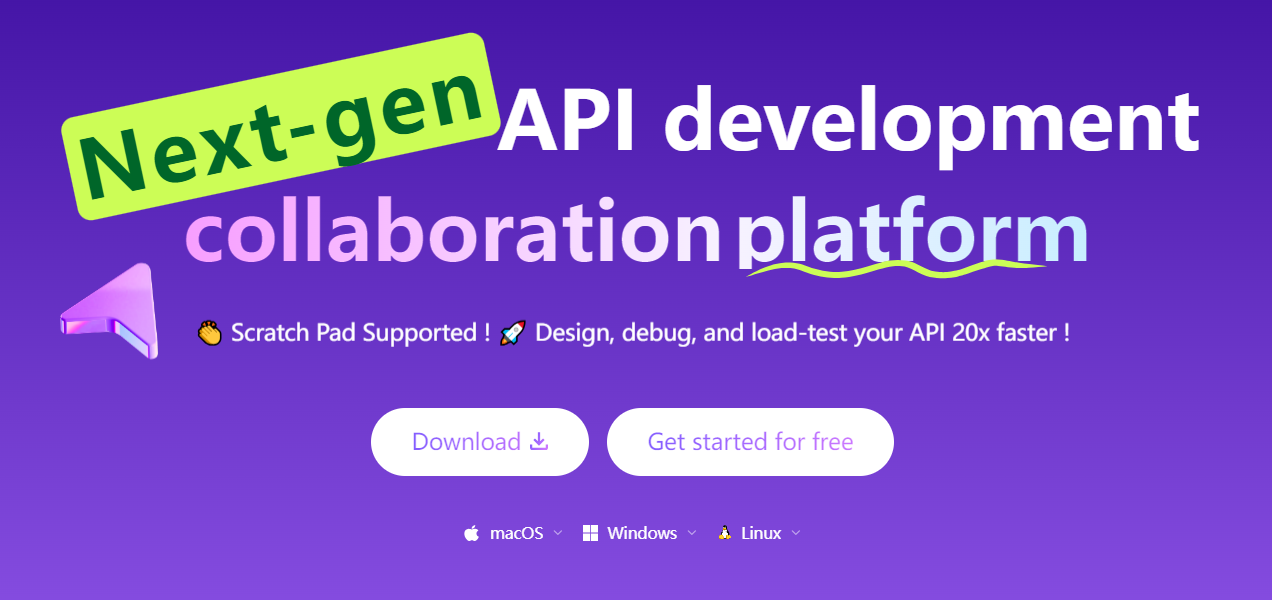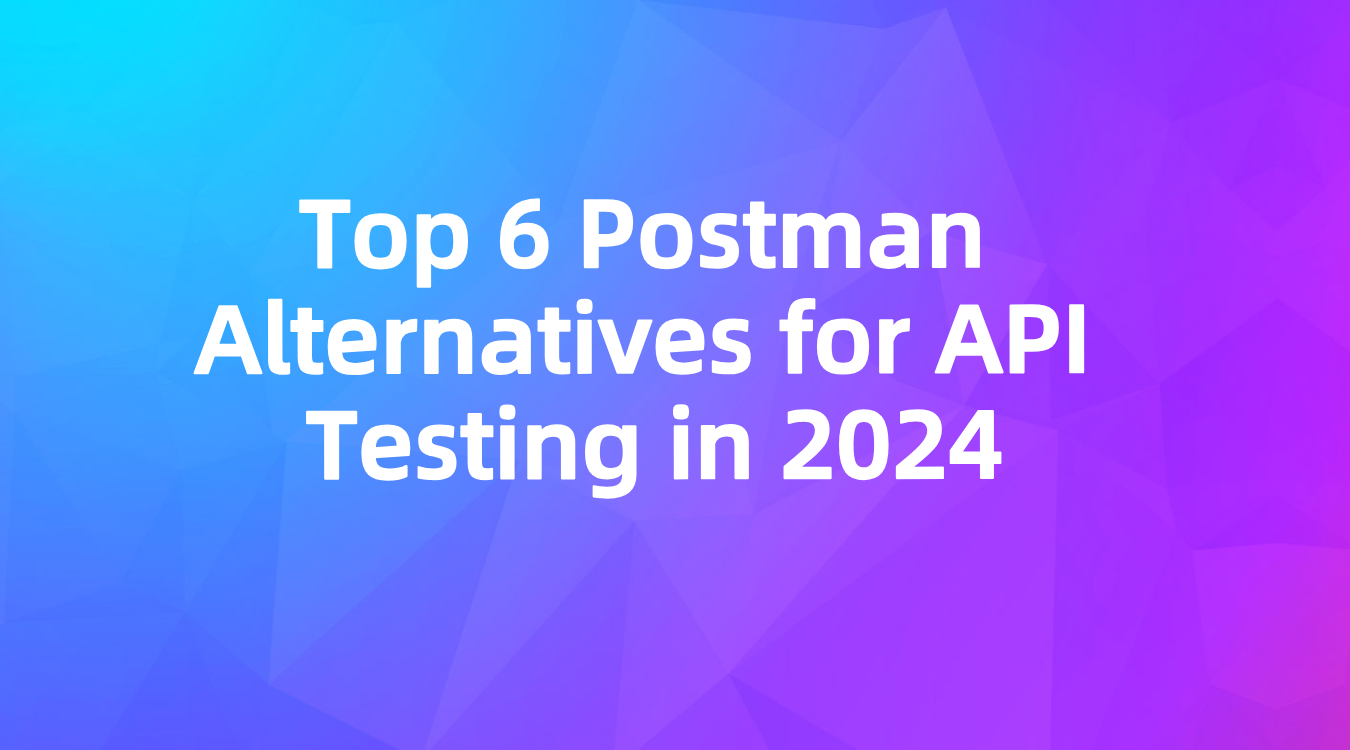Top 6 Postman Alternatives for API Testing in 2024
Postman Alternatives for API Development and Testing
Postman used to be a popular tool for API development, testing, and management. However, it’s become resource-heavy, slowing down your system, and now it requires an account to use—making it less appealing for teams with specific needs. Here are six great alternatives to Postman that might better suit your API testing requirements.

1. EchoAPI: All-in-One API Development Platform

Features:
- End-to-End API Testing: Covers the complete API lifecycle—design, debugging, testing, and monitoring.
- Cross-Platform Compatibility: Available on Windows, macOS, and Linux.
- Mock API Creation: Easily create and manage mock APIs.
- Automated Documentation: Generate detailed and up-to-date API documentation.
- Load and Stress Testing: Built-in tools for evaluating API performance.
- Database Interaction: Integrates with databases for thorough testing.
- CI/CD Integration: Integrate seamlessly with CI/CD pipelines.
- Collaborative Environment: Supports multi-user collaboration.
- Customization and Scripting: Supports custom scripting.
Advantages:
- No Account Needed: Access without an account.
- Cost-Effective: Competitive pricing.
- Resource-Efficient: Lightweight and efficient.
- Rapid Prototyping: Facilitates quick development cycles.
- Robust Error Simulation: Simulate various error responses.
- Enhanced Security Testing: Tools for simulating authentication and authorization.
- Detailed Analytics: Comprehensive logs and analytics.
- Flexible Environment Management: Easy management of multiple environments.
Key Advantage: A lightweight tool that integrates well into CI/CD pipelines without requiring an account.
2. PAW (RapidAPI): Mac Native API Testing Tool

Features:
- Quick API Interface Calls: Efficient parameter sorting and group creation.
- Auth Support: Excellent support for Basic Auth, OAuth1 & 2, and Amazon S3.
- Cookie Connection Requests: Allows cookie-based sessions.
- Native Mac Software: Smooth experience tailored for macOS.
- Customizable Extensions: Ready to use out of the box.
Advantages:
- User-Friendly Interface: Smooth UI and UX for macOS users.
- Comprehensive Auth Support: Variety of authentication methods.
- Integrations: Supports cookie-based sessions and extensions.
- Native Experience: Optimized for macOS.
Key Advantage: The best API testing tool designed specifically for macOS users.
3. SoapUI: Database Connectable API Testing Tool

Features:
- Versatile Testing: Supports REST, GraphQL, SOAP, JMS, and JDBC.
- Quick Interface Test Creation: Minimal clicks needed.
- Database Access Support: Direct database connectivity.
- Reusable Scripts: Load and security testing.
- Groovy Scripting: Custom code creation.
- Data Extraction: From files, databases, and Excel.
- Asynchronous Testing: Data-driven testing capabilities.
Advantages:
- Versatile Protocol Support: Handles multiple API protocols.
- Database Integration: Comprehensive testing with direct database connectivity.
- Groovy Scripting: Custom script-based tests.
- Data-Driven Testing: Facilitates complex test scenarios.
Key Advantage: An open-source tool with extensive protocol support and database integration.
4. JMeter: Top-Level API Load Testing Tool

Features:
- Open-Source: Free, customizable, and extensible.
- User-Friendly Interface: Easy to use.
- Cross-Platform: Developed in Java, runs on Windows, macOS, and Linux.
- CSV Processing: Supports processing of CSV files.
- Diverse Test Result Formats: Charts, tables, trees, logs.
- No Installation Needed: Quick start.
Advantages:
- Open-Source: Free and customizable.
- Cross-Platform: Runs on multiple OS.
- Performance Testing: Designed for load and performance testing.
- Extensible: Supports plugins and custom scripts.
Key Advantage: Flexible tool for both functional and performance testing.
5. Karate DSL: Rising Star in API Testing

Features:
- Built on Cucumber-JVM: Uses the Cucumber framework.
- Supports Various Requests: REST and SOAP.
- Test Execution: Runs tests like Java projects and generates reports.
- Non-Programmer Friendly: No Java knowledge required.
- Data Format Support: Tests XML, JSON, and GraphQL.
Advantages:
- BDD Syntax: User-friendly syntax for writing tests.
- Non-Programmer Friendly: Accessible for non-programmers.
- GraphQL Support: Fully supports GraphQL testing.
- Comprehensive Reporting: Generates detailed test reports.
Key Advantage: Simple BDD syntax that's accessible to non-programmers but robust for thorough testing.
6. REST-Assured: Lightweight REST API Client

Features:
- Serenity Framework Integration: Seamless integration.
- BDD Given/When/Then Syntax: Simple, clear syntax.
- Multiple Parsing Support: Handles xpath, jsonpath, and gpath.
- Automation Testing: Ideal for automation frameworks.
- Structured Data Handling: Advanced XML and JSON parsing.
- Spring Support: Extensive support for Spring.
Advantages:
- Fully Automated Testing: Integration with automation frameworks.
- BDD Syntax: Clear and straightforward syntax for test creation.
- Java Integration: Ideal for Java environments.
- Structured Data Handling: Supports comprehensive parsing.
Key Advantage: Perfect for Java developers, integrates seamlessly into BDD and automated environments.
Conclusion
Postman has long been a favorite for API testing, but these alternatives bring unique features and advantages tailored for different needs. EchoAPI, PAW, SoapUI, JMeter, Karate DSL, and REST-Assured offer varying capabilities that can enhance your API development and testing processes. Evaluating these options will help you find the best tool for your specific requirements, ensuring efficient and effective API testing.









 EchoAPI for VS Code
EchoAPI for VS Code

 EchoAPI for IntelliJ IDEA
EchoAPI for IntelliJ IDEA

 EchoAPl-Interceptor
EchoAPl-Interceptor

 EchoAPl CLI
EchoAPl CLI
 EchoAPI Client
EchoAPI Client API Design
API Design
 API Debug
API Debug
 API Documentation
API Documentation
 Mock Server
Mock Server




